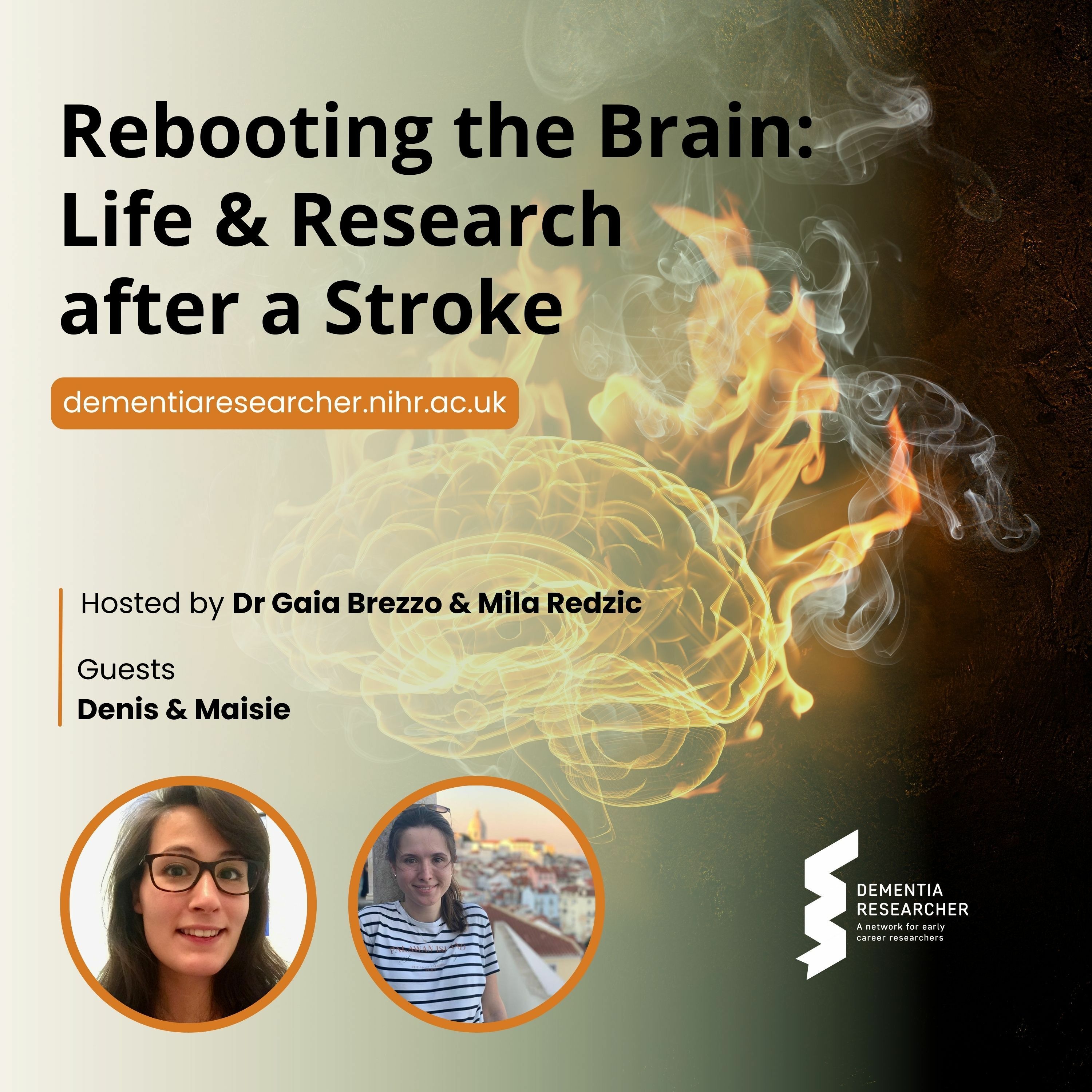Rebooting the Brain: Life & Research after a Stroke

Welcome to this episode of our podcast co-hosted by researchers Dr Gaia Brezzo and Mila Redzic, they our special guests sharing their inspiring story of resilience and hope.\n\nToday, we are joined by Denis and his daughter Maise, they became connected to Gaia and Mila after Denis experienced a life-altering event - a stroke.\n\nTogether they share their personal journey of what it was like to have a stroke, the impact on the family, the challenges they faced during their recovery, and how they adapted to their new normal. They will also be sharing their journey of becoming involved in stroke research, the importance of research in stroke recovery, and how it has impacted their life.\n\nThrough their story, we hope to shed light on the impact of stroke and the importance of research in advancing stroke care, its connections to dementia and the importance of improving the quality of life for stroke survivors. Please join us in welcoming our guest as they share their unique and inspiring journey.\n--\n\nIf you\u2019re interested in participating in a research study, and based in the UK, Join Dementia Research supports people of all ages, both with an without dementia to be matched with appropriate studies. Registration is free, and you can even register on behalf of someone who is unable to do so themselves. Visit https://www.joindementiaresearch.nihr.ac.uk if you live outside the UK, there may be a similar service in your region e.g. Trial Match in the USA, and Stepup For Dementia Research in Australia.\n--\n\nOur hosts this week are:\n\nDr Gaia Brezzo, Research Fellow in Cerebral Vascular Disease and Dementia at the UK Dementia Research Institute at The University of Edinburgh. Gaia\u2019s research focuses on understanding how immune alterations triggered by stroke shape chronic maladaptive neuroimmune responses that lead to post-stroke cognitive decline and vascular dementia.\n\nMila Redzic, PhD Student at The University of Edinburgh. Mila is interested in understanding how microglial responses may shape changes occurring in the neurovascular unit in this context, and whether we can manipulate microglia to promote brain resilience and reduce cognitive impairment.\n--\n\nFull biographies on the hosts and our guests, and a transcript can be found on our website https://www.dementiaresearcher.nihr.ac.uk\n--\n\nStroke is a serious medical condition that occurs when blood flow to the brain is interrupted, which can lead to brain damage. This damage can result in a range of cognitive problems, including dementia.\n\nStudies have shown that people who have had a stroke are at a higher risk of developing various forms of dementia, such as vascular dementia and Alzheimer's disease. The risk of dementia is particularly high in individuals who have had a stroke that affects a large part of the brain or who have had multiple strokes.\n\nIn addition, many of the risk factors that increase the likelihood of having a stroke, such as high blood pressure, diabetes, and heart disease, also increase the risk of developing dementia.\n\nIt's important to note that not everyone who has a stroke will develop dementia, and there are steps you can take to reduce your risk. Managing risk factors for stroke, such as maintaining a healthy diet and exercise routine, quitting smoking, and controlling blood pressure and cholesterol levels, can also help reduce the risk of dementia.\n--\n\nLike what you hear? Please review, like, and share our podcast - and don't forget to subscribe to ensure you never miss an episode \u2013 and if you prefer to watch rather than listen, you\u2019ll find a video version of this podcast with full captions on our YouTube Channel \u2013\n\nhttp://www.youtube.com/dementiaresearcher\n--\n\nThis podcast is brought to you by University College London / UCLH NIHR Biomedical Research Centre in association with Alzheimer\u2019s Association, Alzheimer's Research UK, Alzheimer's Society and Race Against Dementia who we thank for their ongoing support.